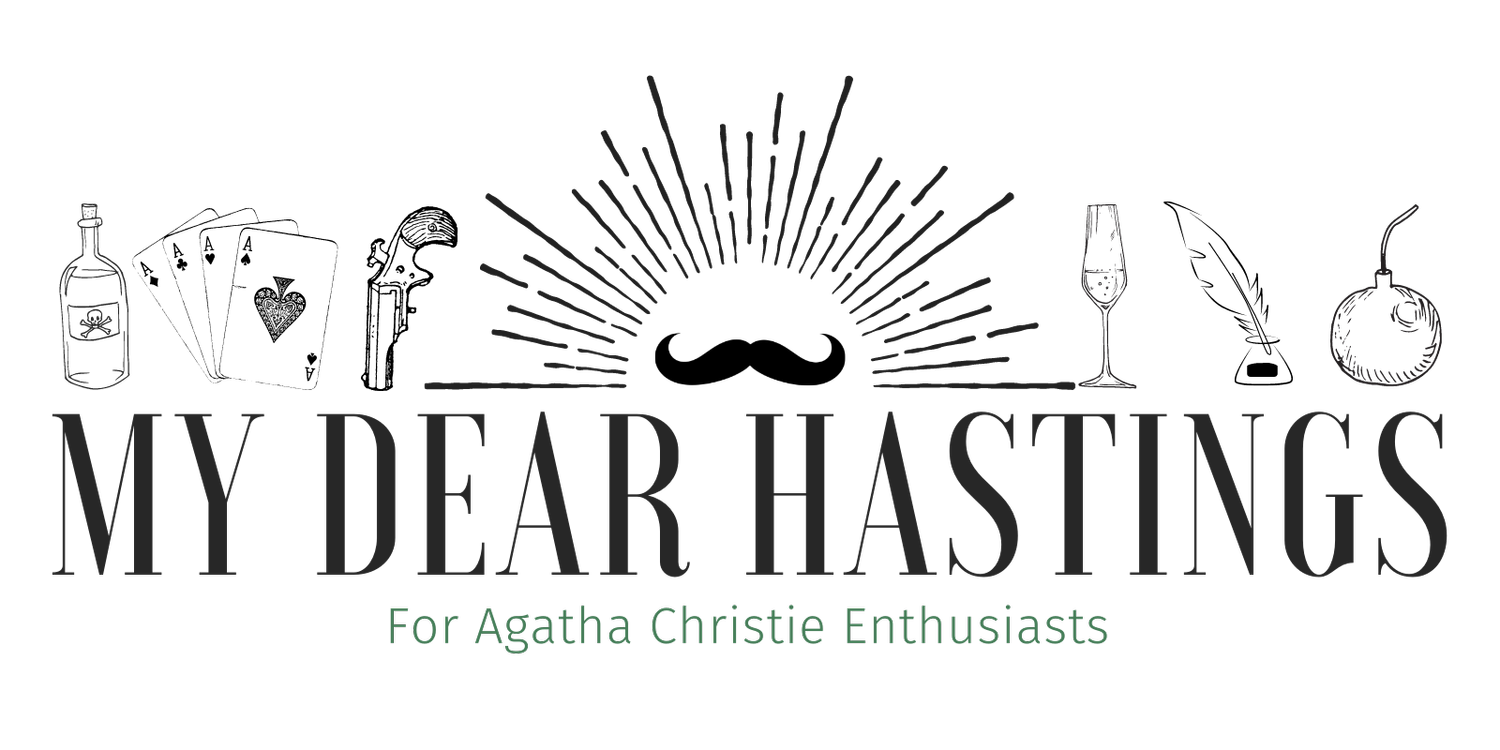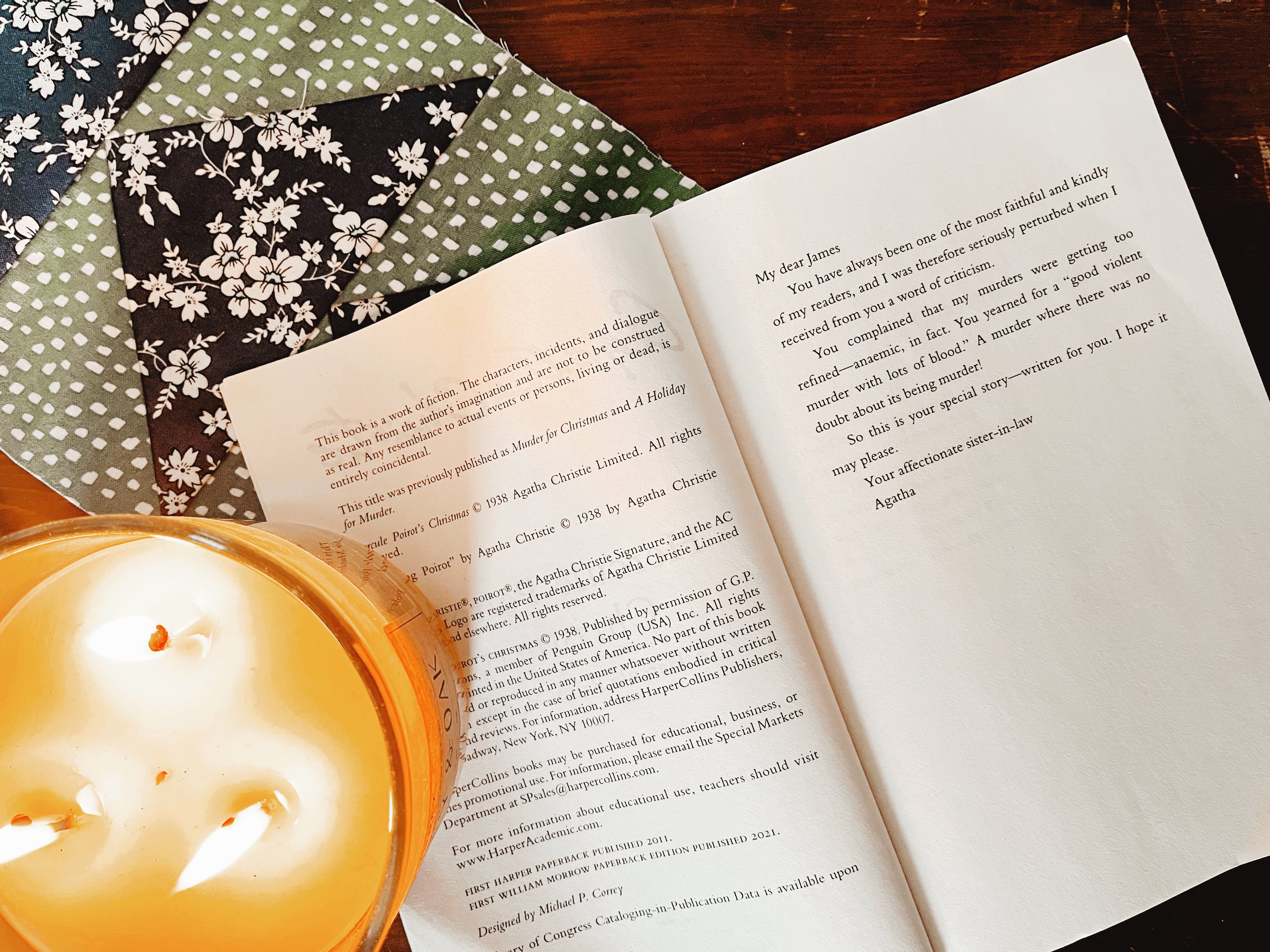Poirot’s Magnum Opus
When reading Agatha Christie’s Third Girl recently, I was fascinated by a paragraph on the very first page, when Hercule Poirot is celebrating having finished his own book, one in which he dissects and rates works of detective fiction and their authors. I was intrigued by this because knowing Agatha Christie as part of The Detection Club, we can assume this sort of thing was discussed at length during their meetings, and so we could speculate that these opinions of Poirot’s were actually the opinions of Agatha herself. I found myself wishing there were more to this short section and that we could gain even further insight into her true thoughts on other books and authors.
This post may contain affiliate links, which means that while I am not paid to promote certain items, I will earn a small commission should you purchase items through these links. For more info, see my disclosure policy.
Third Girl being one of Christie’s later works, it’s no surprise to fans that these sorts of brief, opinionated sections were more common in this period. Her work changed in several ways in those later years and the reasons for this are up for debate, though many speculate that her mind was slipping and she may have been showing signs of dementia, as plots became less tight and more muddled. I believe she had also simply grown more feisty, as anyone in the public eye tends to do when facing the constant barrage of criticism that inevitably comes with fame.
But let’s stay on topic.
I thought it would be fun to break this brief section of Third Girl down and talk about Poirot’s thoughts on these other authors. Did Christie really dislike Poe and criticize Wilkie Collins? And who might those two unknown American authors be who won Poirot’s praise?
Let’s start with the original quote from Third Girl:
“He was satisfied gastronomically. His stomach was at peace. His mind also was at peace, perhaps somewhat too much so. He had finished his Magnum Opus, an analysis of great writers of detective fiction. He had dared to speak scathingly of Edgar Allen Poe, he had complained of the lack of method or order in the romantic outpourings of Wilkie Collins, had lauded to the skies two American authors who were practically unknown, and had in various other ways given honour where honour was due and sternly withheld it where he considered it was not.”
Did Agatha Christie Really Dislike Poe?
Edgar Allen Poe is the generally uncontested father of detective fiction. His story, “The Murders in the Rue Morgue” features a murder along with a detective who analytically solves it, and that is the first well known case of crime fiction. Poe then inspired Sir Arthur Conan Doyle, who then went on to inspire Agatha Christie.
Knowing that Christie was thus influenced by Sir Arthur Conan Doyle and the famous Sherlock Holmes then, it’s hard to imagine she didn’t also hold in high esteem Poe, who set the whole genre in motion. If her own feelings did indeed mirror Poirot’s on the matter and she thought scathingly of Poe, what would be the reasons?
Poe was obviously a darker writer. He wrote more what we would call thrillers, or even horror today, and we know that thriller novels were not considered by The Detection Club to be crime fiction, but something else entirely. We also know Christie disliked gore and avoided very violent deaths in her novels. While not ashamed to kill off a child, her manners of death were less messy than many other writers dreamed up, opting most often for poison as the murder weapon, with only the occasional stab through the skull.
Perhaps Christie didn’t like Poe for his darkly psychological works, or his purportedly unstable mind. Maybe she was annoyed that people considered him the father of a genre which she felt was truly championed by Doyle. At any rate, it’s interesting that she included him “scathingly” in Poirot’s thoughts about authors.
Agatha Christie and Wilkie Collins
Moving onto Wilkie Collins and his “romantic outpourings.” Agatha Christie was known to have read and enjoyed novels by Wilkie Collins, including one of his most well known whodunnits, The Moonstone. So we can’t assume she was not a fan of Collins in general, but it’s quite funny to think of Christie rolling her eyes at the more romantic undertones of Collins’s writing.
Christie herself wrote some stories in the romance genre, but her crime fiction was mainly about the crime. When there was romance in one of her stories, it was always a side plot, or used to wrap up the story at the very end, and there are never gushy romantic monologues. If Christie, like myself, had a hard time not eye rolling at these sappy interludes in fiction, I only admire her more. Or perhaps, knowing Poirot to be who he was, she only imagined him disliking the romantic outpourings, while she herself didn’t mind them.
Whatever the case, we can be sure Christie wouldn’t deny Wilkie Collins his claim to fame in the crime fiction genre, and certainly not for earning his right as the father of the modern detective novel.
Who Are the Unknown American Authors?
Now for the final mystery. There has been much fun speculation over who those two relatively unknown authors could be whom Poirot praises in Third Girl. While we can’t know for sure, there are some contemporaries of Christie who would make great guesses.
American crime fiction author Raymond Chandler is a good guess, while John Dickson Carr is another, but I wouldn’t say those writers were unknown, and we can assume no member of The Detection Club would be considered unknown either.
It’s also possible that she didn’t mean anyone and that she simply put the phrase there and didn’t think through the question of who those authors were (though this doesn’t sound like Christie to me). We could wonder, if she meant specific authors, why didn’t she simply name them? Since the two authors she did mention (Poe and Collins) were dead by this point in time, she didn’t risk hurting their feelings. But if she were to name two living American authors worthy of praise, could she have felt she would be risking the feelings of others in her acquaintance by not naming them?
We don’t know. And we’ll have to be okay with that, I suppose.
In the end, far be it from me to disagree with Hercule Poirot, but I will continue reading Poe every Autumn for as long as I have eyes to do so.
Cheers!
Ariadne
P.S. I do not enable comments on individual articles, but I do encourage Letters to the Editor! Please know that your thoughts may be included an article featuring these letters at some point down the road, though your email address will be kept confidential, of course.




